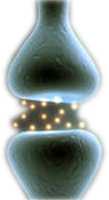1. Introduction
Selective serotonin reuptake inhibitors (SSRIs) form a major class of antidepressant medicines. In 2012 over 27 million prescriptions for SSRIs were dispensed in England in the primary-care setting. SSRIs accounted for more than half of all antidepressant prescriptions in England.
SSRIs inhibit presynaptic reuptake of the neurotransmitter1 serotonin (5-hydroxytryptamine, 5HT), increasing the availability of serotonin at synapses2 and enhancing stimulation of postsynaptic neurones. Changes in receptor sensitivity (eg downregulation3) arising from increased synaptic serotonin are thought to contribute to the antidepressant activity of SSRIs.
The adverse effects of SSRIs are distinct from those of tricyclic antidepressants4; SSRIs have less marked antimuscarinic (anticholinergic)5 activity and, in overdosage, the characteristic features of tricyclic antidepressant poisoning—respiratory failure, defective cardiac conduction and coma—are largely absent in overdose with SSRIs. Characteristic adverse effects—such as those affecting the gastrointestinal tract and sexual function—can be attributed to the stimulation of 5HT receptors.
- A chemical substance released by a nerve cell at the junction between two nerve cells (synapse), which can stimulate or inhibit the other nerve cell. Examples of neurotransmitters include acetylcholine, dopamine, noradrenaline and serotonin.↩
- A junction between two nerve cells. A signal is transmitted from one cell to the other by the release of a chemical neurotransmitter which diffuses across the gap between the cells and interacts with specific receptors on the other cell.↩
- Reduction of response to a substance (such as a hormone or neurotransmitter) that normally produces a particular effect. Often this results from a loss of functioning receptors in response to an excess of the substance that interacts with the receptor.↩
- Tricyclic antidepressants (with a 3-ring molecular structure) inhibit the reuptake of noradrenaline by nerve endings, leaving more noradrenaline at the synapse to act on the other nerve cell. Some tricyclic antidepressants also inhibit the reuptake of serotonin. Examples of tricyclic (and related) antidepressants are: amitriptyline, clomipramine, dosulepin, imipramine, and trazodone.↩
- Reduction or blocking of the effects of parasympathetic nerves; antimuscarinic effects include dry mouth, difficulty swallowing, blurred vision, confusion, palpitations, constipation, and urine retention.↩
